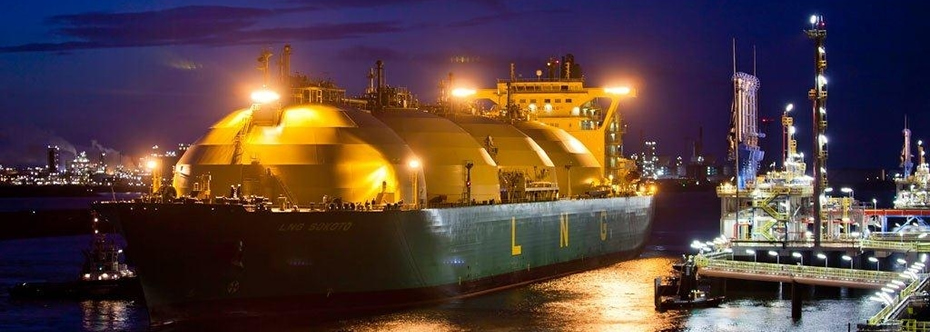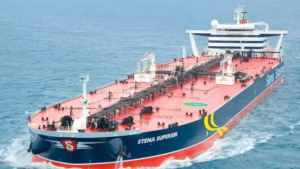Uncategorized
New forex policy will bring short-term pain, says Ecobank

LAGOS-With the commencement of trading under the new foreign exchange guidelines on Monday, the Group Chief Executive Officer, Ecobank Transnational Incorporated, Mr. Ade Ayeyemi, has said there will be short-term pain and a need for adjustments.
Ayeyemi, who stated this in an exclusive interview with our correspondent, commended the decision by the Central Bank of Nigeria to liberalise the forex market.
The CBN had last week said based on the new guidelines, the value of the naira against other currencies would be market-driven, putting an end to its peg of N197-N199 to the United States dollar.
 Ayeyemi said, “The crisis we have in the economy was very concerning. The response that has happened now by the central bank and the government to completely liberalise the forex sector is very good.
Ayeyemi said, “The crisis we have in the economy was very concerning. The response that has happened now by the central bank and the government to completely liberalise the forex sector is very good.
“While we know that there will be short-term pain as a result of those changes, we think in the longer term, it allows liquidity to come back to the economy in terms of foreign currency liquidity. It allows appropriate pricing of goods and services. It removes rent-seeking activities. It allows the economy to grow.”
The ETI Group CEO noted that before the introduction of the forex guidelines, major airlines had started saying they were cancelling their flights to Nigeria.
He said, “We have been kicked out of major indices. Our stock market has gone down to about N9tn. Those are material things. We align with the move that has been made recently with the forex regime. We know that it is going to be volatile in the short run, but it is something that we have to go through, and I encourage the government and Nigerians to stay the course.
“The banking sector will adjust, we believe. The rest of the economy will need to adjust. But we think ultimately, it is a very good move for the country.”
Ayeyemi said the naira may come under pressure in the coming days amid accumulated backlog of forex demand.
“In the short term, whoever wants to supply the (interbank) market will say, ‘Let’s wait and see whether they are going to stay the course; whether there is going to be liquidity in that market.’
“What happens in the short term is that the rate may over-shoot to N300 or higher. But as those demands get met, then suppliers will come into the economy. And as those suppliers come, then the rate will now stabilise.”
Meanwhile, the ETI, which released its financial results for the full year 2015 and first quarter of 2016 at its 28th Annual General Meeting on Friday in Togo, has declared a dividend of $48.2m for the financial year-end 2015, translating to $0.2 per ordinary share.
This is coming after two years of no declaration of dividend by the pan-African banking institution.
At the meeting, the shareholders approved the company’s accounts for the 2015 financial year and the appropriation of its profits, which amounted to $60.8m, up from $5.8m in 2014.
The meeting also approved the re-appointment of joint auditors, Deloitte Nigeria and Grant Thornton, Côte d’Ivoire, for a term of a one-year term.
At a separate extraordinary meeting, a resolution was passed authorising that the nominal value of the ordinary shares of the company be increased from $2.5 per share to $50 per share.
It was resolved that this would be done by consolidating every 20 ordinary shares held into one new ordinary share each, and issuing in replacement, new ordinary shares of $50 each.
The Group Chairman, Ecobank, Mr. Emmanuel Ikazoboh, said the financial results for 2015 were poor and clearly not representative of the earnings potential of the company’s diversified pan-African business model.
He said, “The major reason behind these less-than-satisfactory results was the high level of impairments on loans and financial assets made in 2015, totalling $532m, almost double 2014’s level. This was the resulting a comprehensive review of our asset portfolio and processes.
“Despite a gloomy economy outlook for Middle Africa in 2016, we are confident in the strategy being implemented by management. With the board’s continued support and oversight responsibilities, which we take seriously, we believe we stand in good stead to rise above the challenges.”
PUNCH-
Oil
Houston now exports more crude than it imports- EIA

Yemie ADEOYE with Agency report
HOUSTON TX -Earlier this week, the U.S. Energy Information Administration (EIA) declared that the port district of Houston-Galveston has for the first time ever begun exporting more crude oil than it ever imported. The district includes the Port of Houston as well as other Texas Gulf Coast ports from Galveston to Corpus Christi.
One company helping the port district to build its net-exporter profile is SemGroup Corp., whose HFOTCO subsidiary this week received the first ship at its recently completed deep-water dock along the Houston Ship Channel. In a written statement sent to Rigzone late Thursday, SemGroup noted that its new “Ship Dock 5” – completed this summer along with the addition of 1.45 million barrels of new crude storage – can handle up to Suezmax-size vessels with 45-foot drafts.
“Our unique position on the Houston Ship Channel provides us vast connectivity from virtually all U.S. production basins to the Gulf Coast refining corridor and the growing export market,” according to Shaun Revere, CEO of HFOTCO. “The completion of Ship Dock 5 demonstrates our long-term commitment to expand with the Port of Houston and the Houston Ship Channel. Our parent company, SemGroup, purchased HFOTCO in 2017 as part of its strategy to diversify its business and capture the tremendous opportunities this waterfront property has to offer. We are glad to be part of a company that shares our vision for this area and will continue to invest in infrastructure to better serve our customers.”
According to SemGroup, HFOTCO constructed the dock from December 2016 to June of this year. The parent company stated that the project entailed installing pipelines linking the HFOTCO storage area to the new dock to facilitate product loading and offloading. In addition, SemGroup noted that HFOTCO’s crude oil capacity and connectivity has more than doubled in the last five years in addition to adding crude oil export capabilities.
HFOTCO owns and operates four other ship docks – each of which also can handle up to Suezmax-size vessels with 45-foot drafts. Moreover, the SemGroup subsidiary owns and operates seven barge docks and approximately 18.25 million barrels of storage capacity on its 330-acre waterfront site on Port Houston property. Recent expansions have also given HFOTCO the ability to handle refined products such as naphtha, jet fuel and other distillate products, SemGroup stated.
“The completion of this dock on the Houston Ship Channel by HFOTCO is a positive development,” Roger Guenther, executive director of the Port of Houston Authority, said in the SemGroup announcement. “This partnership between the Port Authority and the company allows us to optimize our real estate assets and meet our strategic growth plan objective to grow and diversify our business base. It also allows HFOTCO to meet its objectives.”
In its August 20 announcement, EIA stated that crude oil exports from Houston-Galveston exceeded imports by 15,000 barrels per day (bpd) in April 2018. The following month, the difference from Houston-Galveston jumped to 470,000 bpd – nearly one-quarter of the total 2 million barrels per day in U.S. crude exports during the period.
Gas
Nigeria risks investment setbacks as Fed.House of Reps passes controversial NLNG amendement Bill

Yemie ADEOYE
HOUSTON TEXAS, USA-NIGERIA may be preparing for a huge setback in foreign direct investments as the federal House of representatives have finally passed the controversial bill that seeks to amend the NLNG fiscal incentives, Guarantees and assurances Act for the sole aim of ensuring a 3 percent budgetary tax to the Niger Delta Development Commission, NDDC barely a week after the Minister of state for petroleum resources, Dr. Ibe Kachikwu declared the federal government’s support for Nigeria LNG Limited.
The minister who declared his support for the NLNG while addressing a world press conference on the sidelines of the recently concluded Offshore Technology Conference in Houston Texas noted that an agreement is binding especially when it involves international investors. according to him there is certainly no basis for controversy as this is the exact reason why the agreement was supported by an act of parliament in order to further boost investor confidence.
However, the Federal House of Representatives passed a bill for the amendment of the NLNG (Fiscal Incentives, Guarantees and Assurances) Act irrespective. and the NLNG in a statement opined it does not believe that this is in the national interest, as its direct consequence would be to project Nigeria as a sovereign-state promise breaker and an unsuitable destination for investments.
A statement released by the General Manager, External Relations of the company, Kudo Eresia Eke, said the amendment violates the Assurances and Guarantees granted the investors by the country, and reinforced by successive governments, which paved the way for the huge international investment that enabled the company to become a reality and the success story it is today.
The main thrust of the Guarantees and Assurances were to assure the foreign investors that their investments would be protected by the non-amendment of the NLNG Act. This is the reason why the NLNG Act has remained intact and protected by all administrations from inception, in recognition of the sanctity thereof.
Reacting to the news of the said passage of the amendment by the House of Representatives, the Managing Director of Nigeria LNG, Tony Attah, said the proposed amendment can ONLY be a DIRECT ATTACK on the present Government’s EASE OF DOING BUSINESS AGENDA and in the current administration’s determination to attract direct foreign investment to Nigeria. It needs to be clearly stated that INVESTMENTS are unlikely to flow into an environment where contracts and agreements are flagrantly violated as is imminent in this instance.
By way of background, the Niger Delta Development Commission (NDDC) Act has its origin in the need to address the adverse effects of upstream oil and gas exploration and production activity –specifically oil spills and gas flaring—as well as the development needs of the Niger Delta region
For the avoidance of any doubt, NLNG does not prospect for or extract gas from the ground. The Company buys feed stock from its gas suppliers, which it proceeds to clean and cool for sale. As such, the company is like any manufacturing, petrochemical or refining firm that uses gas as feedstock, and there are quite a number of them in the Niger Delta. We are unaware that any other company is being targeted as NLNG apparently is. NLNG helps to convert and monetise gas for the benefit of the environment, shareholders and other stakeholders including the Government and Nigeria.
Nevertheless, NLNG has since inception continued to pay applicable taxes, levies and charges to local, state and federal tiers of Government amounting to well over $5.5 billion. This is besides about $15 billion already paid in dividends to the Federal Government through the NNPC. In addition, we operate a robust corporate social responsibility programme, considered to a model by the rest of the oil and gas industry. The programme has cost about 200 million US dollars to date and extends to areas including business and human capacity development and infrastructure development in our primary areas of operation and across Nigeria. It is instructive that NLNG was operating a Nigeria scholarship scheme even before it exported its first cargo in 1999/2000. More recently, the company has spent 12 million US dollars to donate engineering laboratories and equipment to 6 universities across Nigeria’s geo-political zones, to support science and technology teaching and research. In addition, NLNG currently supplies 40% of the nation’s cooking gas (LPG) while also providing scholarships to Internally Displaced Persons (IDPs) in the North-East of the country.
This curious amendment initiative represents the first time in the history of legislative practice in Nigeria, when a law is amended for the sole purpose of imposing a levy against a private company for the benefit of an agency of government. The current National Assembly is strongly urged not to inadvertently lend itself to the establishment of such an unjust and potentially damaging precedent. More so when the said agency in this instance had lost its claim in the courts, including the Supreme Court of the land. As a private company with the vision to help build a better Nigeria, we are aware that courtesy of the referenced assurances and guarantees as well as the regulations and provisions of the law, shareholders and NLNG have the right to pursue the protection of our business interests as provided for under the same regulations and the law.
NLNG wishes to state that should the need arise it shall seek that protection under the law.
Uncategorized
Exit of cash calls agreement to usher in Investment in Oil sector-NNPC

By Yemie ADEOYE
ABUJA-THE Upstream petroleum sector in Nigeria which has recorded low investment in recent years would soon be upbeat in a flurry of activities.
This is the prevalent views of captains of the Oil and Gas Industry led by the Hon. Minister of Petroleum, Dr. Ibe Kachikwu, the Group Managing Director of NNPC, Dr. Maikanti Baru and chief executives of International Oil Companies (IOCs) at a signing ceremony of cash-call exit agreement between NNPC and its Joint Venture partners in Abuja today.
Speaking at the event, Dr. Ibe Kachikwu stated that the consensus in the industry is that with the signing of agreements to exit cash calls, investments would soon flow into the Nigerian Oil and Gas Industry.
The Minister said if the industry focused on key issues that impede the industry and resolve them, Nigerian Oil and Gas Industry would soon be able to compete favourably with its peers across the world.
“This event is significant because it has taken us to a point where we can compete with our colleagues all over world. We have dealt with the downstream, and this is probably the most important item in the upstream and that is obvious we will begin to go into the policy measures and infrastructural development and the rest after the signing ceremony” Dr. Kachikwu said.
In his remark at the event, NNPC GMD, Dr. Maikanti Baru recounted that a lot of work went to the signing ceremony of the cash call exit agreement noting that the Buhari Administration should be commended for mustering the desired political will to resolve the challenge.
He explained that the signing of the exit cash call agreements comprises three components which are: the process of settling the pre-2016 cash call areas; the process of sustaining the cash call payment from 2017; and agreement and settlement over performance in 2016.
Dr. Baru also commended the contribution of the Hon. Minister of State for Petroleum Dr. Ibe Kachikwu for his contribution to exit cash calls in the industry.
Dr. Baru stated that the Dr. Kachikwu offered necessary supports to put the framework of the agreement in place as well as energize the process when naughty issues capable of derailing negotiations aroused.
Also speaking during the signing ceremony, Chairman of Oil Producers Trade Section of the Lagos Chamber of Commerce and Industry, who is also the Chairman and Managing Director of Chevron Nigeria Limited, Mr. Clay Neff, said that the signing ceremony represents a milestone in the Oil and Gas Industry in Nigeria.
Neff expressed optimism that the agreement would stabilize and also increase upstream production over time, stressing that the repayment of the arrears in a sustainable manner is a key enabler to additional investment in the upstream sector in Nigeria.
Under the new arrangement which came into effect following the signing of the agreement between the NNPC and the IOCs Joint Venture Partners, the entire NNPC equity Oil and gas revenues are now to be paid directly into the Federation Account.
Hitherto, competition from other appropriated items of expenditure in the federal government’s budget has always limited the deduction of technical cost required to fund the cash calls on monthly basis.
It is expected that execution of this agreement would end the long standing cash call challenges that have impacted the Nigerian oil and gas industry over the years.
With this arrangement, the federal government will continue to receive royalties, taxies and profit from its equity share of JV oil and gas production while the cost of operation is deducted upfront.
The agreement provides that the outstanding cash call arrears will be repaid within a period of five years through incremental production revenues without impacting the established based production revenue.












